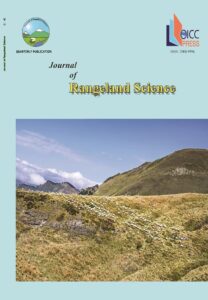A Review on the Role of Indigenous Knowledge in Rearing Livestock in Rangelands (Olad Village, Andika, Khuzestan Province, Iran)
Authors
Abstract
Cultural ecology is a knowledge that examines the cultural aspects of the relationship between human being and its surrounding. In this regard, this study with a qualitative method and a naturalistic approach using a technique that focused on groups and also a profound interview has investigated indigenous ecological knowledge to manage the herds in Olad village, Andika town, Khuzestan province, Iran, 2016. The findings of the study showed that the people living in this village for many years use their local knowledge in order to interact with the surrounding environment, breeding and keeping livestock in various pasture. They also divide the pastures based on recognizing the need in any physiological stage of livestock. In this regard, they acquired ecological memory in the field of livestock identification. They also have acquired indigenous knowledge in all fields, including mating and calving, time management, taking care of lambs, young goats, breastfeeding or milking, and forming the structure and composition of the herds according to the cultural and environmental conditions. They have a pity on the treatment of livestock and culture of collaboration and co-operation in using pastures. Ultimately, the present study confirmed the protective aspects, and economic, social, cultural and indigenous knowledge of villagers in order to express their potential natural resources and also upgrade their development physically and spiritually. It has been stated that indigenous ecological knowledge of herders plays an important role in the stability of land and livestock management and also all natural fields.



